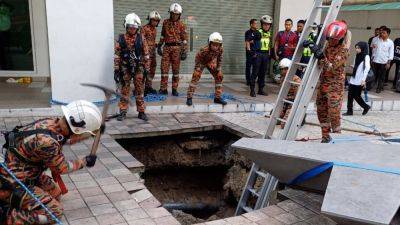Why the insect apocalypse should concern us all
David Goulson, professor of biology at the University of Sussex in Britain, warns: Whether you call it an apocalypse, insectageddon or whatever, there is certainly a serious problem with our insect populations declining.”
In 2017, German researchers in Krefeld near Düsseldorf, poring over insect records back to 1905, reported that the insect population in one nature reserve was down 80 per cent from 1989. The Rothamsted Insect Survey reported a 33 per cent decline in larger moths caught in a light-trap network over the past 50 years.
In California’s Central Valley, 1.5 million beehives are ready to pollinate almond blossoms each spring. But the region is such a “toxic soup of pesticides”, according to the beekeepers, that they lose about a third of their bees every pollinating season.
The answer is that the story is complicated. While some insects are clearly in decline, others are thriving. Some of those thriving are pests that we would be pleased to do without.
What we should worry about are the helpful ones whose disappearance would make life on Earth challenging: those among the hundreds of thousands of species that pollinate over a quarter of a million flowering plants; the seed distributors; the insects that help recycle nutrients on a forest floor and aerate the soil; and of course those insects that sit at the bottom of the food chain, critical in so many larger animals’ diets.
Working out how serious a problem we face would be easier if we had better data. For example, the International Union for the Conservation of Nature has a red list of endangered European bees, but acknowledges that over half of Europe’s bee species are “data deficient”.
In the UK, a recent House of Commons report on insect decline noted that,







